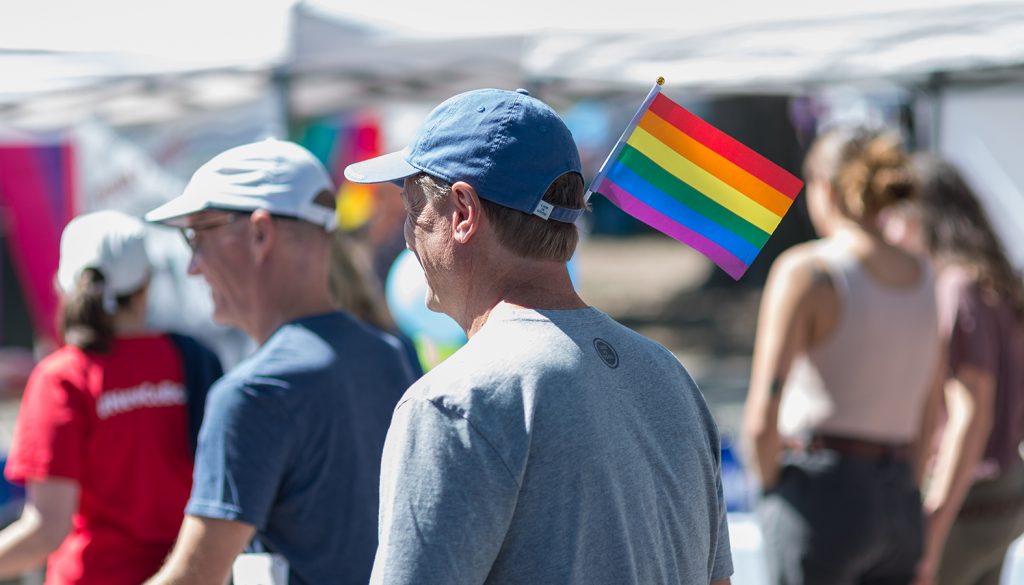There certainly was a time when baseball was “America’s pastime” – but that was also a time when gas was 26 cents a gallon. Nowadays, it seems that the NFL has that kind of majority share of the public imagination.
Still, U.S. professional baseball, football and basketball share a common denominator: they are multi-billion dollar, multi-national leviathans that wield significant economic and cultural power. When an NBA general manager does as little as suggest that the freedom-loving people of Hong Kong should get more of a fair shake, he is denounced and hammered down by team owners, superstar players, and coaches. China, we were reminded, is a major economic partner with that sport, and making its communist regime unhappy is bad for business.
Like most Fortune 500 companies today, major league baseball believes it is good business to establish a reputation as being socially conscious and progressive.
We watch a lot of Dodgers games in my house. But the game in the first week of June was different. It was “Pride Night” and the “L.A.” logo on the Dodgers’ caps was not white but rainbow colored. I was watching the game with my adult son and at first, I held my tongue. I thought a lot of things, like this sure was different from my experience of the “Catholic Schools Night” games I attended at Dodger Stadium as a kid.
Watching the game, I wondered aloud whether the Dodgers players were required to wear the garb. What would it take for one of the players to not don an endorsement of such a divisive ideology?
I decided to just think about other things. But just a few days later I got something of an answer to my question while reading the news. That same week, I learned, there were five Tampa Bay Rays baseball players who did have the courage to abstain from wearing the rainbow colors on their uniforms at their team’s annual pride night.
One of those players, pitcher Jason Adam, summed up their actions this way:
"So it's a hard decision. Because ultimately, we all said what we want is them to know that all are welcome and loved here. But when we put it on our bodies, I think a lot of guys decided that it's just a lifestyle that maybe — not that they look down on anybody or think differently — it's just that maybe we don't want to encourage it if we believe in Jesus, who's encouraged us to live a lifestyle that would abstain from that behavior, just like [Jesus] encourages me as a heterosexual male to abstain from sex outside of the confines of marriage. It's no different."
The resulting salvos fired from social media, including from the mainstream press, were as predictable as they were savage. These five players did what most of us, those of us who claim to believe what Jesus and His Church have always taught about sexuality, are too timid to do. They did not shout. They did not rant about perdition, mention Sodom or Gomorrah, and they did not insist that everyone in the stadium convert to Christianity. And they certainly did not condemn anyone.
Instead, these baseball players stated their position simply and charitably. And for that they have incurred a whirlwind of persecution. The only question that remains for those of who sympathize with their predicament is, when will it be our turn? When will we have to choose where to stop “going along to get along,” when will we face that wall where we must either submit or turn around and just say no?
Days later, the New York Times entered the fray with a column from its national baseball writer denouncing the rogue players. Maybe the irony editor had the day off when this excerpt from the editorial was allowed to get loose:
“It [the team’s pride night] is meant to be a collective show of unity, without judgment, yet some players were allowed to send a different message.”
Was “pride night” really a judgment-free zone? What were all those players wearing the rainbow colors on their uniforms doing, if not judging the rest of us for holding to our beliefs on sex?
These ball players who dissented on that pride night did so in a spirit of love, but it is called hate. It was done on a night of inclusion, but they have found themselves excluded. Their official statement was one of humility, and that is the opposite of pride.

